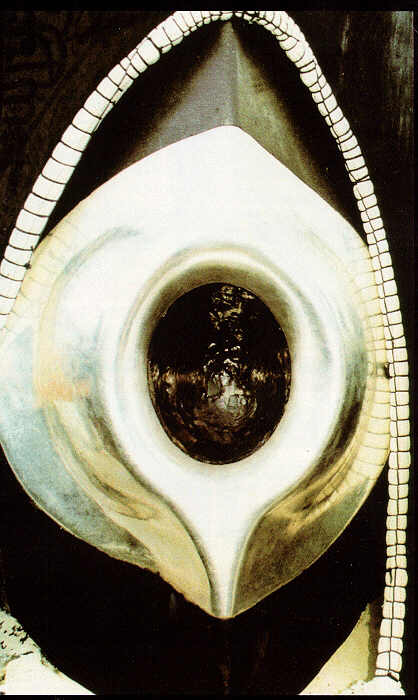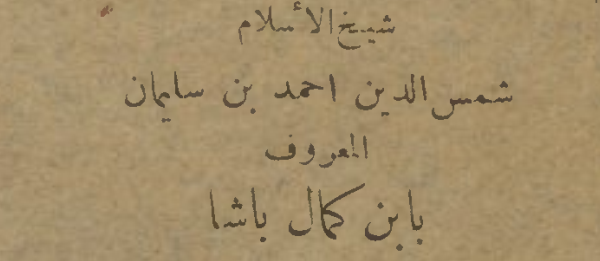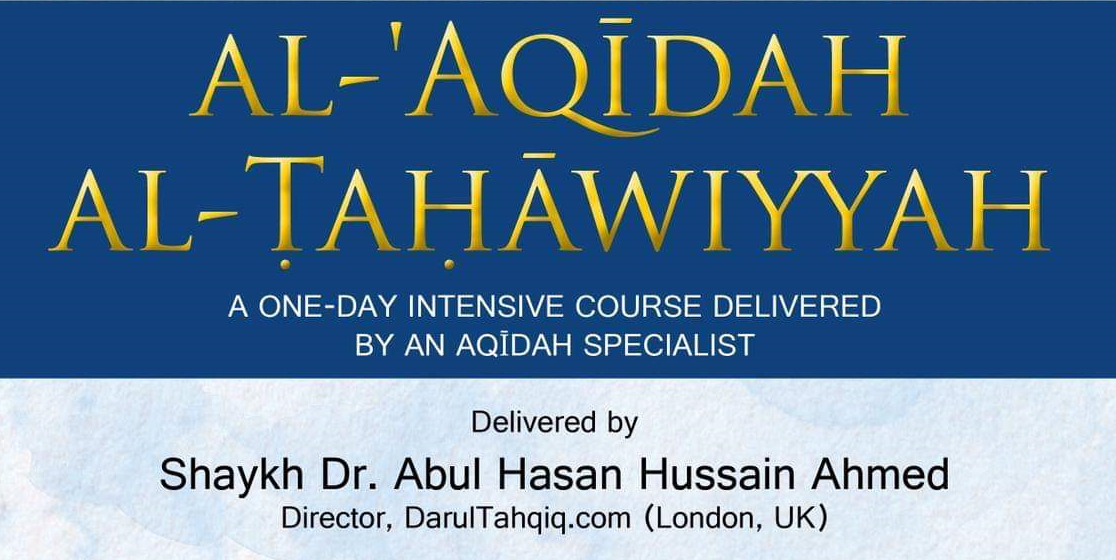Shaykh al-Islam Taqi al-Din al-Subki on ibn Taymiyya’s Belief of Hell Being Non-eternal
Shaykh al-Islam Taqi al-Din al-Subki (D. 756AH) on ibn Taymiyya’s book on hell being non-eternal:
The faith of Muslims, is that paradise and hell do not perish, Abu Muhammad ibn Hazm having transmitted scholarly consensus (ijma’) on this point and on the fact that whoever denies it is an unbeliever (kafir) by scholarly consensus. And there is no doubt of this, for it is necessarily known (necessarily known meaning things that any Muslim would know about if asked) as part of the religion of Islam, and proof after proof bears it out. Allah Most High says:
(1) “Nay, but whoever earns a wicked deed and is encompassed by his error, those are the inhabitants of hell, abiding therein forever” [Quran, 2:81]
(2) “Verily those who disbelieve and die as unbelievers; the curse of Allah, the angels, and people, one and all, is upon them, abiding therein forever; the torment torment shall not be lightened from them, not shall they be respited” [Quran, 2:161-162]
(3) “Whoever of you leaves his religion and dies as an unbeliever, those are they whose works have failed in this world and the next, and those are the inhabitants of hell, abiding therein forever” [Quran, 2:217]
(4) “Those who disbelieve, their friends are the evil ones, who lead them from the light to darkness. Those are the dwellers of hell, abiding in it forever” [Quran, 2:257]
(n: There follow some fifty-six Quranic verses of similar purport which have been left untranslated for the sake of brevity:
2:162, 3:116, 4:14, 4:93, 4:168-69, 6:128, 7:36, 9:63, 9:68, 10:27, 11:106-7, 13:5, 16:29, 21:99, 23:103, 32:14, 25:69, 33:64-65, 39:72, 41:28, 43:74-75, 47:15, 59:17, 64:10, 72:23, 98:6, 2:86, 32:20, 2:167, 2:102, 3:22, 4:56, 4:121, 5:37, 11:8, 11:16, 14:21, 14:29, 23:108, 29:23, 45:35, 22:22, 35:36, 17:97, 40:49-50, 42:45, 69:36, 78:30, 87:13, 90:20, 82:16.)
….The other verses that mean the same thing are very many, a fact that eliminates the possibility of explaining them away figuratively and necessitates complete conviction of them; just as the verses proving bodily resurrection, because of their great numbers, eliminate any possibility of explaining them away figuratively. We adjudge whoever explains these verses as if they were figurative to have committed unbelief because of the knowledge which the evidence en masse affords. And so it is too with the very numerous and intersubstantiative hadiths about this, such as the Prophet’s saying (Allah bless him and give him peace):
(1) “Whoever kills himself with a knife will abide in the fire of hell, perpetually stabbing his belly with it, undying therein forever. And whoever hurls himself from a mountain and kills himself shall abide in the fire of hell, perpetually falling to his death, undying therein forever.”
(2) “As for the inhabitants of hell who are its people, they shall be undying therein and unliving.”
(3) “When the people of paradise go to paradise and the people of hell go to hell, Death shall be brought forward, placed between paradise and hell, and slaughtered. And a crier shall be heard ‘O people of paradise, there is no death; O people of hell, there is no death!’”
And there is the like of the above evidence concerning paradise, as Allah Most High says:
(1) “Those who believe and do good works, they are the dwellers of paradise, abiding therein forever” [Quran, 2:82]
(2) “Whoever obeys Allah and his messenger, He will admit them into gardens beneath which rivers flow, abiding therein forever. That is the mighty triumph” [Quran, 4:13]
(n: Thirty-eight verses of similar purport follow, which have been left untranslated, as before, for brevity:
2:82, 3:15, 10:62, 3:198, 4:13, 4:57, 5:85, 5:119, 9:89, 9:100, 11:23, 10:26, 11:108, 13:35, 14:23, 15:48, 18:3, 18:107, 20:76, 21:102, 23:11, 25:15, 25:76, 29:58, 4:122, 39:73, 41:8, 43:71, 41:30, 48:5, 56:17, 57:12, 58:22, 50:34, 64:9, 65:11, 95:6, 98:8.)
….So these are the verses we can recall about the eternality of paradise and hell. We have mentioned hell first because we have come across a work about hell perishing by one of the people of the present era. We have quoted about one hundred Quranic verses, approximately sixty concerning hell, and forty on paradise. Immortality (khuld) or words derived from it are found in thirty-four of those dealing with hell and thirty eight of those about paradise. Everlastingness (ta’bid) has been mentioned in conjunction with immortality in four of those dealing with hell, and mentioned eight times about paradise, seven of them in connection with immortality. Never leaving and so forth has been plainly stated in over thirty verses. The consequence of the concatenate and intersubstantiative character of these and similar verses is absolute certainty that what Allah Most High thereby intends is their literal meaning and significance. It is not something in which the outward sense might be used to imply other than the plain purport, which is why Muslims unanimously concur upon faith in it, descendants having taken it from ancestors in unbroken succession from their Prophet (Allah bless him and give him peace). It is integrally embedded in the innate faith (fitra) of the Muslims, necessarily known as part of the religion of Islam, and even held by all non-Muslim sects. Whoever denies it is an unbeliever (kafir), and whoever explains it away figuratively is he same as someone who figuratively explains away Quranic verses about the bodily resurrection, meaning that he too is an unbeliever, because knowing the verses necessitates belief.
I have come upon the above-mentioned work, whose author mentions three positions about paradise and hell perishing: that both end, which he declares none of the early Muslims have said; that neither ends; and that paradise remains but hell ends; the latter of which he inclines toward and adopts, saying that is the position of the early Muslims (salaf). Allah be our refuge from this! I exonerate the early Muslims from it and do not believe a single one of them said it. There are only some words that have been ascribed to certain individuals of them that are to be taken as all problematic utterances are, meaning they are construed and interpreted in light of other than their ostensive sense, for just as there occur expressions requiring such exegesis in Quranic verses and hadiths, so too words occur in the discourse of scholars that must be fittingly explained. Whoever takes words of early Muslims that were spoken to motivate people to do good or be afraid of doing evil and so forth, and interprets them literally, recording them as if they were a “school of thought” has misled himself and others. Nor is this scholarship, for the way of the scholars is to uncover the meaning of words and what is intended by them. When we are certain that what has been ascribed to a speaker is his actual position on a matter and his belief, we attribute it to him. But unless we are certain, we do not attribute it to him, this being especially true of basic tenets of Islamic belief like the above, about which Muslims unanimously agree on one position. How can one proceed to the opposite of what they believe and then attribute it to the greatest of Muslims and exemplars of believers, considering it a topic of scholarly disagreement as if it were a question about ablution (wudu)? How remote whoever does this is from knowledge and from guidance! This is a reprehensible innovation (bid’a) of the most ominous and ugliest sort, and Allah has knowingly led whoever says it astray….
(n: several pages follow, examining various objections to the eternality of hell raised by the above-mentioned author, some of them citing statements ascribed to early Muslims, which, as Subki points out, apply to disobedient Muslims who will one day leave the hellfire, not to unbelievers, polytheists, or the likes of Pharaoh and Satan. Only a few of these objections could be translated below because of their length.)
(Objection) There is a hadith in the Musnad of Ahmad that herbiage will one day grow on the floor of hell.
(Reply) It is not in the Musnad of Ahmad, but in others, and is a weak hadith. If it were rigorously authenticated (sahih), it would be interpreted as referring to the level where disobedient Muslims (‘usat) are.
(Objection) Harb Kirmani said, “I asked Ishaq about the word of Allah Most High,
“‘…except as your Lord wills’ [Quran, 11:107],
“and he replied, ‘This verse applies to every threat of punishment in the Quran.’” And it is related from Abu Nadra that one of the Companions of the Prophet (Allah bless him and give him peace) said, “This verse applies to the entire Quran wherever the words ‘Abiding therein forever’ are mentioned.”
(Reply) If authenticated, these statements are interpreted as applying to disobedient Muslims, for the departure of Muslim sinners from hell is not explicitly stated in the Quran, but only in the sunna, and is through intercession. So the meaning of these statements is to show the agreement between the Quran and sunna on this, for the early Muslims had great fear, and did not find in the Quran that true monotheists would leave hell, and were afraid of unending punishment.
(Objection) Allah has informed us that His mercy encompasses everything [Quran, 7:156], and has said, “My mercy has outstripped My wrath” [Sahih al-Bukhari, 9.411], while if one hypothesizes an unending torment, there is no mercy at all.
(Reply) The hereafter is of two abodes, an abode of mercy unmixed with anything else, which is paradise; and an abode of torment unmixed with anything else, which is hell; this being a proof of Allah’s omnipotence, while the present life is compounded of both. So if by saying “If one hypothesizes an unending torment, there is no mercy at all,” one means to absolutely deny that there is any mercy, it is not true, for there is the very perfection of mercy in paradise; while if one means there is no mercy in hell, we reply that even if one holds that mercy and torment are things, Allah Most High says (n: in the remainder of the verse “My mercy encompasses everything”),
“I shall inscribe it for those who are godfearing” [Quran, 7:156].
(Objection) It is established that Allah is all-wise and all-compassionate, and that wicked souls (who, if they were returned to this world, would go back to their wrongdoing) are unfit to dwell in the abode of peace. Now, if given a torment that would purge their souls of this evil, it would be tenable with respect to the divine wisdom, but as for creating souls who do evil in this world and for whom there is nothing but torment in the next, this is a contradiction than which few things are more inconsistent with wisdom and mercy. This is why Jahm denied that Allah is the Most Merciful of the Merciful, but rather said that He does whatever He wills, and those who follow Jahm’s path, like Ash’ari and others, do not hold that He actually has wisdom or mercy. But since it is established that He is all-wise and all-compassionate, and the falsity of Jahm’s position is realized, this necessitates that we affirm what mercy and wisdom entail – so the position of the Mu’tazilites concerning His wisdom and mercy as well as that or the Qadarites, determinists, and deniers of the divine attributes, are equally false, and the most glaring of their errors is considering hell eternal. That is what their positions imply, while Allah has informed us that the inhabitants of paradise and hell will not die, so they must have some abode, and it is impossible that they should be tormented after entering paradise, so no alternative remains except the abode of happiness. A living being is never without either pleasure or pain, and if pain is excluded, this necessarily implies eternal pleasure.
(Reply) Having openly said what he has said at the end of the above, this person implies that that Satan, Pharaoh, Haman, and all the unbelievers will end up in eternal bliss and perpetual enjoyment, something that no Muslim, Christian, Jew, polytheist, or even philosopher has ever said. Muslims believe that paradise and hell last forever, while a polytheist holds that there will be no resurrection, and a philosopher will be in a state of pain. So we do not know of anyone who has made the statement this man has, which entails leaving Islam, because of the knowledge afforded by the sheer amount of evidence against it. Glory be to Allah Most High, who says,
“Those who disbelieve in the signs of Allah and in meeting Him, it is they who shall despair of My Mercy” [Quran, 29:23]
and says,
“Whenever it abates, We shall increase for them the blaze” [Quran, 17:97]
Allah’s prophet (Allah bless him and give him peace) has informed us that Death shall be slaughtered between paradise and hell, which without doubt could only be done to show the people of hell’s despair and their certainty of living forever in torment. Were they to move on to pleasure and enjoyment, it would be a great hope for them, better than death, and they would be without despair. How can anyone who believes in these verses and hadiths say such a thing? What he said about wisdom is ignorance, and what he said about Ash’ari (Allah be well pleased with him) is a deliberate lie against him that we seek refuge in Allah Most High from.
(Objection) One could hold that souls are cleansed of wickedness by this torment and then become Muslims.
(Reply) Allah be our refuge! Their becoming Muslims in the hereafter will be of no benefit to them, by unanimous consensus of Muslims, and by the word of Allah Most High,
“Its faith will not benefit any soul that did not believe before” [Quran, 6:158]
(Objection) What wisdom is there in creating such people?
(Reply) The wisdom lies in making manifest the divine omnipotence so that believers may contemplate it and reflect upon the immensity of the majesty of Allah Most High, who has the power on the one hand to create the angels, the righteous, the prophets, and the Liegelord of Creation Muhammad (Allah bless him and give him peace); and the power on the other hand to create Pharaoh, Haman, Abu Jahl, the fiends of jinn and mankind, and Satan, the Chief of Misguidance; and who has the power to create the two final abodes, each pure and unadmixed: one for everlasting happiness, the other for agonizing torment, and yet a third abode, this world, compounded of both. Glory to Him whose omnipotence is such, and whose magnificence is so exalted! Allah Most Glorious is well able to create all people as obedient believers, but He Most Glorious has willed to manifest the thing and its opposite, those who know to know it, and those who are ignorant to be ignorant of it, knowledge being the origin of all felicity and that from which true faith and obedience grow, and ignorance being the origin of all damnation and that from which all unbelief and disobedience grow. I have not seen anything ruinous to the affairs of this world or the next save that it was the result of ignorance, which is truly the most baneful of all things. …Whoever says that heaven or hell perish is an unbeliever.
[(al-Hut, Kamal Yusuf, ed.) al-Rasa’il al-Subkiyya fi radd ‘ala ibn Taymiya wa tilmidhihi ibn Qayyim al-Jawziyya, 196-208 (documents, letters, and passages by Taqi al-Din al-Subki and others edited and commentated upon by al-Hut). Beirut: ‘Alam al-Kutub; Quoted with translation by Shaykh Nuh Ha Mim Keller in Reliance of the Traveller, pg. 995-1002, w55.3]
Taken from HERE
Note -The image in the slideshow (top of the page) is the actual handwriting of Imam al-Subki stored in the Khalidiyya library in Jerusalem




